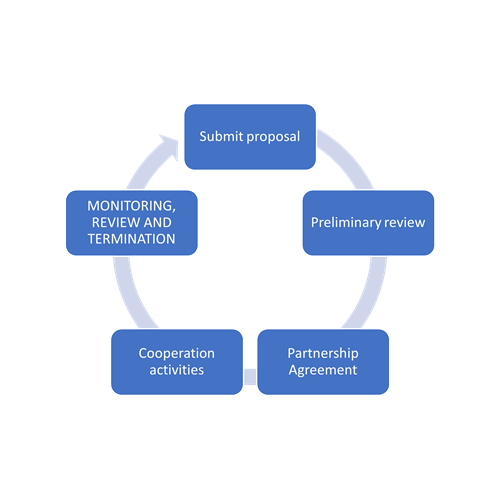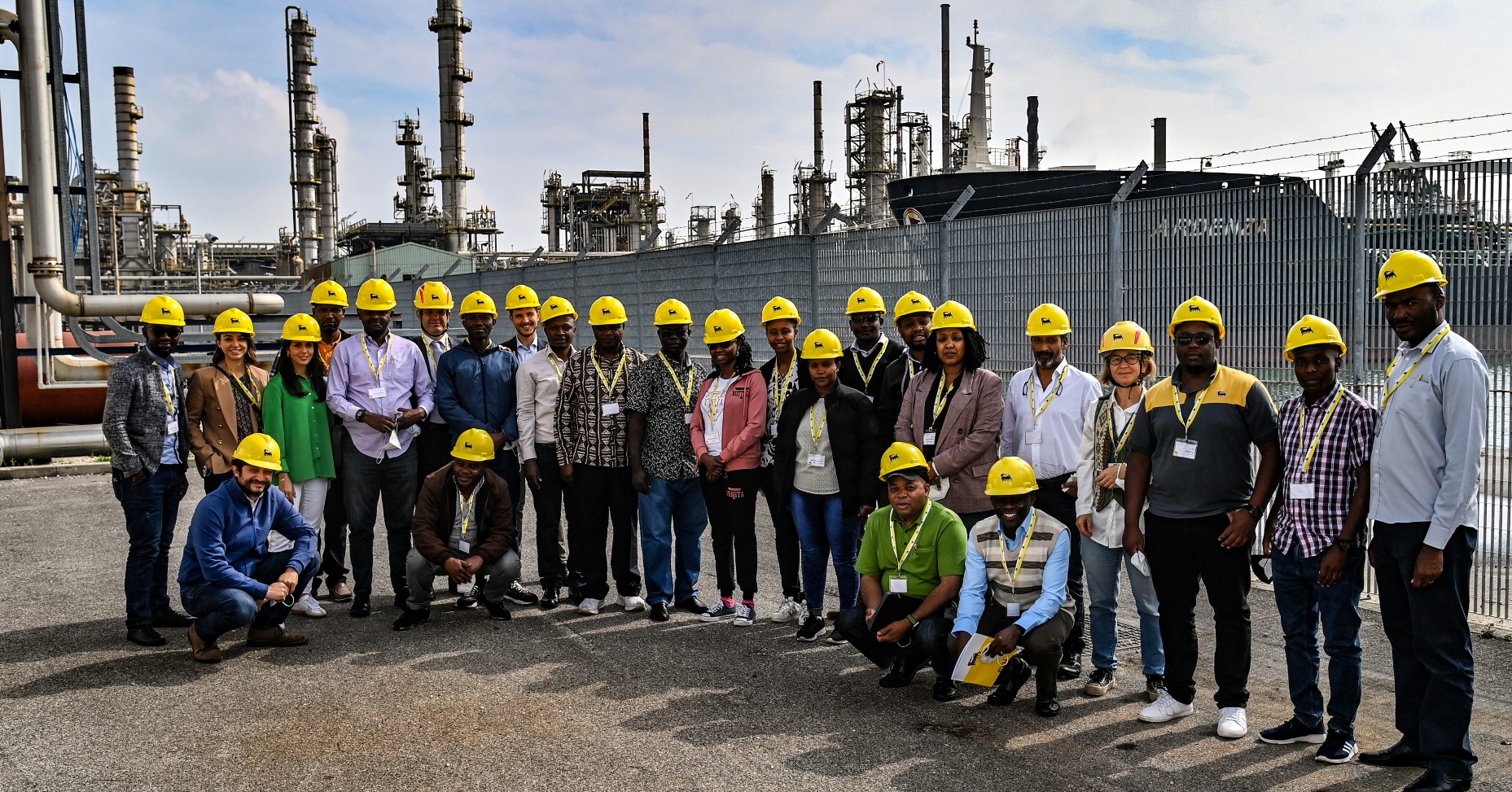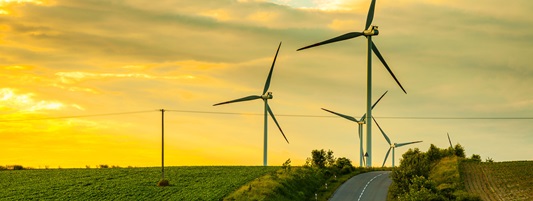Guidelines for co-operation with the private sector
“International, intergovernmental and non-governmental organisations are natural and indispensable partners to IRENA, as are the many private sector companies already seizing the opportunities offered by renewable energy”
IRENA Vision and Mission
IRENA is pursuing a proactive strategic approach to work with public and private partners, networks and constituencies in furtherance of its mission and goals. Partnering with a broad range of constituencies providing diverse expertise, advice and support has become one of IRENA’s hallmarks in many areas of its work
The partnerships are key to translating IRENA’s expertise, knowledge and tools into a sustained impact on the development and deployment of renewable energy.
Guiding Partnership Principles
- Non-exclusivity and no unfair advantage
- Advance IRENA’s goals
- Cost Efficiency
- Cooperation with adequate and relevant partners
- Cooperation shall be subject to the conclusion of a formal agreement
- No commercial relationship shall be established
- Confidentiality and protection of proprietary rights
- Transparency
Cooperation Proposal
Private sector partners interested in cooperating with IRENA may submit a proposal to indicate the scope, objectives, duration and the anticipated impact of the proposed cooperation activities.
Cooperation proposal process

Current private sector partnerships
Eni S.p.A
IRENA and Eni S.p.A partnered in 2021 to collaborate on promoting renewable energy and accelerating the energy transition through a focus on fossil fuel exporting countries, tackling private sector investment and facilitating dialogue and experience sharing, among other activities.
Read the press release
Signed in September 2021, the partnership agreement between Eni and IRENA continues to build on both organisations’ commitment to accelerate the energy transition. The partnership’s particular aim is to speed the development of renewable energy in contexts where decarbonisation objectives closely align with energy access goals, especially in Africa. While the region attracted only 2% of global renewable energy investment in the past two decades, the opportunities that renewables offer are immense.
For instance, biofuels in Africa have huge untapped potential. As shown in the latest IRENA World Energy Transitions Outlook, biofuels are a fundamental component of decarbonising the road transport, shipping and aviation sectors. For this reason, Eni and IRENA have jointly developed an initiative to build capacity in the national institutions involved in the biofuels value chain in Africa, with the goal of strengthening their competences and skills. It is a wide and intensive programme that will involve different African countries between 2022 and 2024.
The first event took place in September 2022, when a delegation of 18 public officials from key ministries in Kenya and Rwanda were hosted in Italy for 10 days. The programme started with five days in Castel Gandolfo at Eni Corporate University premises, where Eni has its archive and training centre. In this beautiful lake town near Rome, lecturers from Eni and IRENA provided an overview of the entire biofuels value chain and its role in the energy transition as a means to achieve sustainable development goals. The opening ceremony was attended by Eni senior management representatives and Nicola Bazzani from Italy’s Ministry of Foreign Affairs, who expressed his support for the initiative and for the Eni-IRENA partnership.
Complementing theory with practice, the programme continued with a site visit to an Eni biorefinery in Venice – the world’s first biorefinery to be converted from a traditional oil refinery. The participants could see with their own eyes how the energy transformation is an opportunity for economic development. The programme ended at the open-air laboratory in Oristano, Sardinia. Here scientists evaluate the most suitable plants for growing in marginal and arid soils, with the goal of developing feedstocks that can ensure the sustainability of the biofuels value chain and avoid competition with the food chain.

The climate challenge is an issue that affects everyone – governments, institutions, international agencies, the private sector, citizens – and should be faced with a collective effort. That is why Eni and IRENA believe in their partnership and aim to continue working together, pooling resources and leverage respective strengths towards the common goal of a sustainable future.
Enel Foundation
In 2021, IRENA entered into a partnership with the Enel Foundation. The two parties agreed to share data and insights about the development of the green hydrogen economy, which is increasingly cited as a central component of carbon neutral economies by 2050, and cooperate on youth engagement initiatives.
Read more
Siemens Energy AG
In 2021, IRENA signed a Partnership Agreement with Siemens Energy to strengthen collaboration on the application of technology by promoting green hydrogen, facilitating private sector investment and supporting decarbonization efforts in hard-to-abate industries, among other activities.
Read more
Snam S.p.A
IRENA and Snam S.p.A signed a Partnership Agreement in 2021 to develop green hydrogen through various activities including supporting and implementing pilot projects, encouraging public-private partnerships to accelerate demand and knowledge-sharing.
Read more
State Grid Corporation of China
IRENA signed an MoU with the State Grid Corporation of China in 2021. The agreement aims to decarbonize the energy systems in China and IRENA’s Clean Energy Corridor regions, mainly by supporting grid enhancements, system flexibility and sector-coupling.
Enel Green Power
IRENA entered a partnership with Enel Green Power in 2022 with the aim of renewable energy development. The collaboration is focused on the renewable energy generation sector, green hydrogen and social sustainability of the energy transition. It also aims to advance regulatory, financial and legal solutions for decarbonization.
COFIDES
IRENA extended its collaboration with COFIDES by signing an MoU in 2022. Under the agreement, the organizations aim to accelerate the financing of renewable energy in emerging and developing economies through enhanced collaboration on the Climate Investment Platform and the Energy Transition Accelerator Financing Platform.
Akuo
IRENA and Akuo signed a Partnership Agreement in 2022 with the aim of strengthening the role of the private sector in the deployment of renewable energy. Under the areas of cooperation, Akuo will support IRENA’s existing initiatives such as the Investment Forums and Coalition for Action.
General Electric
In 2022, IRENA and GE forged a partnership to advance the involvement of the private sector in the energy transformation. The partnership aims to support energy security and climate change with specific focus on decarbonisation and thought leadership, among other pillars.
